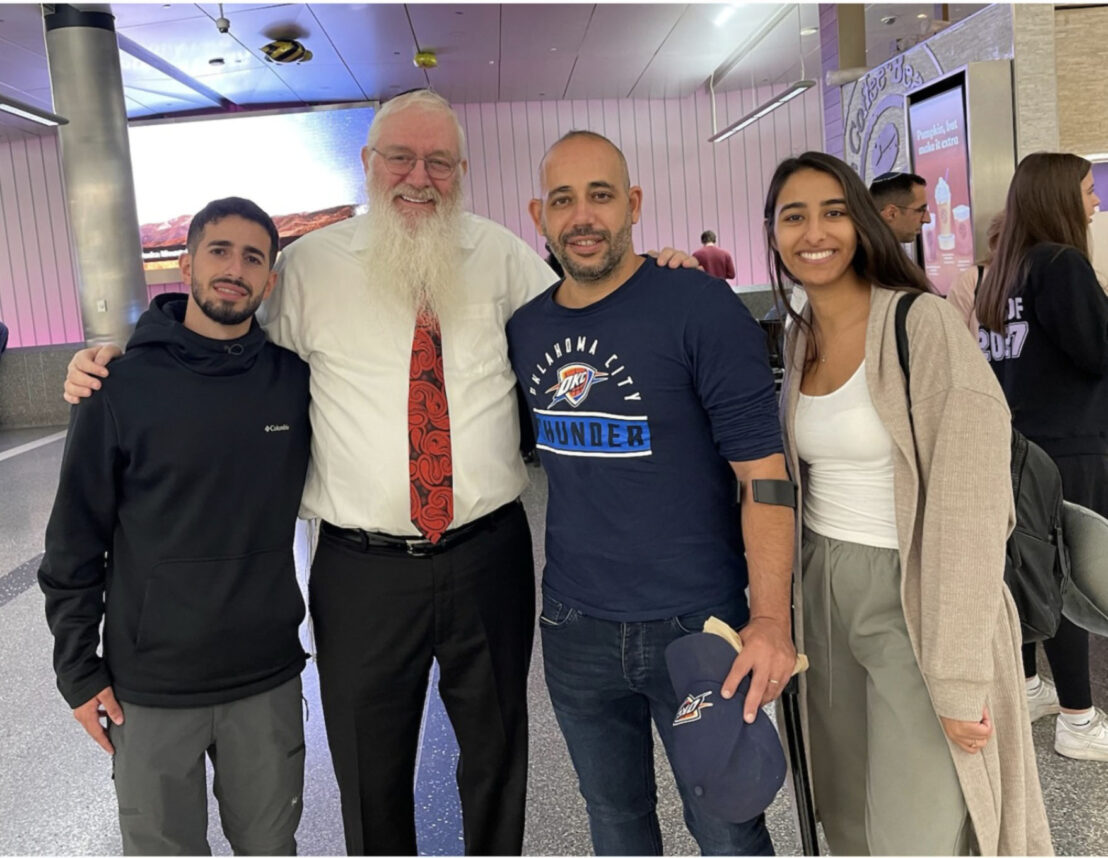Los Angeles is estimated to be home to roughly triple or even quadruple the number of Israelis as the Bay Area. When it comes to technology start-ups, however, there is barely even a comparison.
The Bay Area, according to the non-profit Israeli Executives and Founders Forum (IEFF), is home to over 125 Israeli tech start-ups, as well as roughly half-dozen Israeli investment vehicles, incubators, and accelerators. By the estimate of Yair Grindlinger, an entrepreneur who has led several Israeli companies that relocated to the Bay Area as they grew, IEFF may only be counting a third to a quarter of the actual total, meaning more like 400-500 Israeli tech start-ups in Northern California.
Los Angeles? Well, there’s no comparable organization to IEFF, but my research for this article suggested that you would be hard-pressed to identify more than a handful of Israeli start-ups who have relocated here.
Why have Israeli tech companies flocked to the Bay Area and more or less avoided Los Angeles? The obvious answer is funding: of the roughly $4 billion spent annually in trade between California and Israel, the overwhelming majority has been sourced from Silicon Valley and San Francisco-based investors into Israeli technology.
This should surprise no one, given that the Bay Area predominates in tech investment nationally – not just levels of tech funding, but in terms of track records, focus, and access to talent. In the world of healthcare technology investing where I work, by contrast, Los Angeles trails not only the Bay Area, but also New York, Chicago, and Boston.
If that’s the case, why am I – a L.A.-based healthcare lawyer and investor – coming to Israel to plug L.A. as a destination for digital health startups? I suspect it’s the same reason that American Friends of Tel Aviv University organize their annual entertainment and health technology IDEAS conference in Los Angeles. And that the Israel Conference, now in its eighth year, chooses L.A. as the venue to showcase Israeli technology. It doesn’t take a rocket scientist to see that L.A. has enormous untapped potential to invest in and support Israeli technology.
It’s not just about the substantial population of Israelis already here or a large L.A. Jewish community friendly towards Israeli tech and interested in impact investment. Even beyond Israeli technology, Los Angeles has significant undeveloped potential to be a hub of technology and, closer to my world, for bioscience and digital health. Government and industry groups in Southern California keep scratching their heads in dismay at the fact that, despite its many advantages – good weather, a well-educated talent pool, ample local investment capital, an enormous local marketplace to pilot and test ideas, and a concentration of major academic research centers like UCLA and USC, L.A. continues to be a “leaky bucket” in health tech – losing entrepreneurs to other parts of the country – rather than a destination.
Many of us are betting that something is about to give. Local government seems increasingly interested in supporting economic development in and around greater Los Angeles to encourage a more business-friendly climate for innovation and entrepreneurship. (Similar efforts have shown promise in San Diego as well.)
Together with a group of healthcare business leaders, I recently launched a new investment vehicle, the Adaptive Healthcare Fund, with the belief that funding is part of the equation in moving the needle and catalyzing early-stage healthcare innovation in Los Angeles. While we are looking to support local Southern California innovation and entrepreneurs, we’re also betting that a key part of the recipe for success will involve persuading Israeli entrepreneurs (and potentially entrepreneurs in other significant, non-U.S. health technology hubs, like India) to come to L.A. I’m in Israel this week to meet with start-ups, venture capitalists, and Israeli service providers, precisely to see whether we can work to bring the promising Israeli health tech start-ups to L.A. Their growth will almost certain require a base of operations somewhere in the U.S., so why not consider L.A. as an alternative?
Smart investment capital is only part of the equation. From the perspective of entrepreneurs, the complaint is that, notwithstanding the beautiful weather, Los Angeles is expensive and has a thinner talent pool of programmers.
But that’s changing. In the past several years, Google and other Bay Area tech giants have invested in building a large presence in L.A. As pricey as L.A. is, the inflation and crowding in Silicon Valley and San Francisco have actually made L.A. more attractive. L.A.’s Silicon Beach tech scene may be a drop in the bucket compared to the Bay Area but, in fairness, it took four decades and the birth of giants like Google, Apple, and Facebook for Northern California to earn its reputation as the tech innovation hub. Los Angeles is at a much earlier phase, but is showing promise. The key is developing investor interest in nurturing and sustaining that growth.
Will Los Angeles become next hub for Israeli digital healthcare innovation and other Israeli tech start-ups? Stay tuned. The flight to L.A. may be a few hours longer than New York or Boston, but I wouldn’t bet against the appeal of Southern California. As my wife Dorit promised me when she pitched me on moving here fifteen years ago, “You have to love L.A. If you don’t, just wait a week and it will reinvent itself.”
Harry Nelson is a healthcare regulatory attorney in Los Angeles and the co-chair of the investment committee Adaptive Healthcare, a healthcare investment fund. He advises clients on healthcare and life sciences regulatory compliance and business strategy.




















 More news and opinions than at a Shabbat dinner, right in your inbox.
More news and opinions than at a Shabbat dinner, right in your inbox.